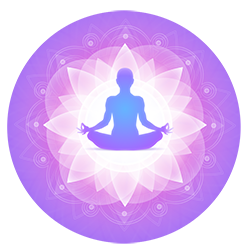[Written in response to a 5/19/19 solicitation from Yoga Journal: how yoga helped me reconnect with others and myself].
Yoga has positively affected my emotions, thoughts and behavior; through it I’ve found confidence, faith, purpose and a sense of connectedness with others.
I was raised in a house devoid of love. Where there should have been joy and happiness, there was resentment, judgment and condescension.
I grew up feeling unlovable. Nothing I did, no matter how hard I tried, was ever good enough. Nothing elicited verbal, let alone physical demonstrations of affection from either of my parents.
A sense of dread, worthlessness, and emptiness followed me everywhere – and only fueled a desperation to please my parents. Not being particularly physically fit, I excelled in art and academics – and later at work – all to no avail.
I lived a life of virtual solitude. I built emotional walls to block out the pain, and developed obsessive behaviors in hopes of winning approval and masking my perpetual angst. I typically had one or no male friends, and only seemed to have slightly better luck with the fairer, more intuitive sex because of an undying desire to please and win affection.
But sex was always a double-edged sword: while it temporarily satisfied a need for intimacy, I remained emotionally withdrawn, defensive, and rarely emotionally satisfied. Sex was often passive-aggressive and almost always a selfish endeavor.
I developed coping habits. I lived a life fraught with obsession and addiction. I discovered the numbing affects of alcohol at 15, and drugs a few years later – until that means of escape culminated in a nervous breakdown during my sophomore year of college.
Work and sex largely distracted me thereafter from a deep sense of depression, though few people, other than immediate family, noticed anything outwardly other than economic success – a consequence of working seven days a week.
I dragged on, largely sustaining but emotionally failing in my few personal relationships until I was in my mid-forties when I discovered yoga – ostensibly for the exercise, but subconsciously seeking answers, a solution or remedy for my mental hell.
My first yoga instructor, Jessica, gave me her own rather dog-eared copy of Bouanchaud’s “The Essence of Yoga” (which is hard to find now, though a good starter book), and while I’d been sober for almost 30 years, she said “A lot of people in AA find this helpful.” No wonder: Patanjali’s Kriya Yoga, from the beginning of chapter two of the Yoga Sutras, is the source of the Serenity Prayer.
Jessica and subsequent teachers taught me the physical aspects of Patanjali’s discipline. Over the next ten years I was introduced to scholars who have devoted their lives to sharing insights into Patanjali’s work, which became a personal obsession (go figure).
Slowly, steadily, I developed physical and emotional strength, and learned acceptance, courage and wisdom, becoming more comfortable in my own skin. And then three years ago, while sitting on the floor of our living room half watching TV, I had an epiphany: a simple insight into Patanjali’s science of human nature.
After years of trying to decipher the concept of our multiple mental layers surrounding our “atman” (our essence or consciousness), it ‘clicked’: there’s literally a world of difference between our ever-changing thoughts (evidence of our mind), and our never-changing awareness OF them (evidence of our consciousness).
Consciousness is unlike anything else on earth; that’s the premise (Sankhya) upon which Patanjali based the discipline of Raja Yoga, incorporating Kryia and Ashtanga Yoga practices. Sankya is the observation that consciousness (our awareness) is unlike anything else in the known universe; it’s the only “thing” that doesn’t function, age or fade away; it’s the only thing unaffected by time and space. Biological science can’t explain it, yet it’s very much a part of each of us.
While the origin and scope of consciousness are literally beyond human comprehension, we can readily verify its existence, since without it, we wouldn’t realize we’re alive!
That realization (the existence of something within ourselves that science can’t explain) gives rise to faith, not just in oneself but also in the unknowable, intangible source of consciousness – and faith in the latter is the most powerful, motivational, purposeful power there is (“Yea though I walk through the valley of the shadow of death….” – that level of confidence is life altering).
Faith shines light where previously there was only darkness and despair; it brings out confidence where there was none; it makes empathy and sympathy for oneself and others possible.
Yoga (“union”) provides a sense of community, belonging, love, compassion, forgiveness, acceptance, courage and wisdom that nullify the demons within that otherwise affect our emotions, thoughts and behavior; specifically, our perceptions and interactions with others. We learn to truly put the needs of others before our own.
Yoga has made me a better husband, father and friend. I wish it for everyone.
Allan (Skip) Dowds




